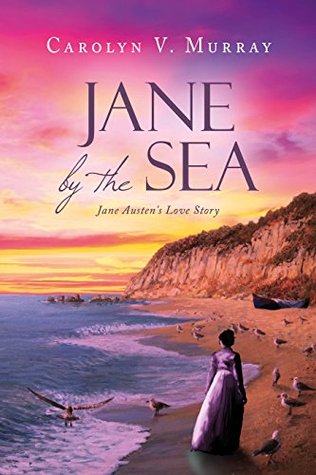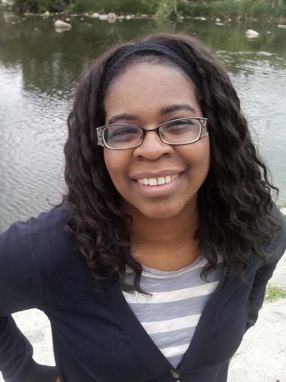
Jane Austen’s love stories have withstood an incredible test of time. They are widely read and loved two hundred years after they were written. We know that Jane Austen never married. Where did her expertise in love come from? There is some evidence that she developed a deep mutual attachment to a man she met during a seaside family holiday. But almost no details are known of this man. Only that her sister was later to say that he was a man who was truly worthy of Jane.
This is the story of that pivotal encounter. It is written in Jane’s own voice, as closely as it could be captured. Not the gentle wit of her novels, but the sharp, blunt tongue that she used so freely in her candid letters to her sister.
At the same time, we will watch how her writer's voice evolved; how she drew from the people and events in her life to create the masterpieces of Pride and Prejudice and Sense and Sensibility.
Buy the Book:
http://www.amazon.com/Jane-Sea-Austens-Love-Story-ebook/dp/B011E62MN6/ref=sr_1_1?ie=UTF8&qid=1437455898&sr=8-1&keywords=jane+by+the+sea
Review:
Jane Austen’s love stories are timeless romances sprinkled with endless wit and intriguing characters. Where did Jane find her inspiration for such romance and characters when she herself was never married? Carolyn V. Murray takes inspiration from little known facts about Jane’s summer spent in the Seaside town of Sidmouth and imagines Jane’s intense love affair with Royal Navy Lieutenant Frederick Barnes. Jane’s father is a clergyman who has fallen on hard times. Jane is now a daughter with poor prospects, but high hopes in the romance department. After a failed encounter due to her family’s status, Jane is apprehensive of another failed relationship and accepts her future spinster status. However, after a chance encounter with the determined Lieutenant, Jane’s heart begins to soften at the chance for love.
This was an incredibly sweet story that also felt very authentic. I think Murray did an excellent job capturing Austen’s voice, personality and interactions. Jane was an amazing character, full of life, complex emotions and plenty of tenacity and cleverness. It was very interesting to learn about her family, their circumstances and Jane’s relationships with them, especially as these relationships affected her fictional characters. I loved Jane's ups and downs within her relationship with Frederick, it seemed like such a natural progression and they were so perfect together. I really enjoyed seeing how her changing perspective on Frederick and love itself influenced the character of Darcy in her writing. Overall, this was a highly entertaining, sweet and quick read for any fans of Jane Austen or historical romance.
This book was provided for free in return for an honest review.

Carolyn V. Murray spent her childhood with the proverbial nose inside a book; between Encyclopedia Brown, the Laura Ingalls Wilder saga, A Wrinkle in Time, etc…she could not start the next book soon enough. At the age of eleven, she approached a librarian and asked to see books on how to become a writer. The librarian was amused, and Carolyn was NOT happy to be the source of this amusement. It would be a couple more decades before she really believed that writing was her destiny.
Her "9-5" life included the good (teaching) the bad (working in casinos) and the ugly (catering in an electric clown suit.) Her writing path took a long detour into the pursuit of screenwriting, where she got selected as a Walt Disney Writing Fellow, had four original screenplays optioned, and wrote one freelance script that made it to the TV screen.
But these days, she's a lot more excited about creating the kinds of books that sustained her childhood. She is drawn to history, biography, love stories, and travel. Jane by the Sea is her first novel.
I was engrossed in my playing and did not hear the door open behind me. But I certainly heard it close, and I whirled around to see an apologetic Lieutenant Barnes.
“I hoped there was better entertainment to be found in these back rooms. And so I was right. A very pretty tune, Miss Jane,” he praised.
“I do not play for the enjoyment of others. Only myself,” I replied, coolly.
“That is most ungenerous. Why should you not share your talents with the world?” the lieutenant scolded.
“First of all, the ladies who share their talents with the world do so with one object, and that is to attract a marriage proposal. Hardly a charitable motive. After that object is secured, she is free to abandon the pastime,” I explained.
The lieutenant was full of objections. He had known many gifted young ladies who evidenced a true love of music for its own worth, including his younger sister who had a wondrous gift with the pianoforte. And she was married. I wondered how many times he had seen her since she married.
“And did she play? This prodigy? Or did she step aside for the unmarried ladies?”
The lieutenant stared at me in mute revelation, followed by an amused chuckle.
“And secondly? You have another objection to sharing your talent?”
“Only this: my playing does not qualify as talent. No, do not indulge me in false compliments. My playing is of a mediocre quality and can bring pleasure only to myself. Society must prevail without the contribution of my talents, for I have none.”
“What? None? Surely you can sing?”
“Surely not.”
“Harp? Drawing? Needlework? Are you in earnest? Are you absolutely free of talent? That is most refreshing.”
What a strange idea. “You find this a cause for celebration?” I asked.
“Indeed, for you know not how exhausting it is for gentlemen to continually be expected to appreciate a woman’s talents. Hours of recitals. Endless displays of embroidery. A woman without talent is a rare find.”
He gave all appearance of sincerity, but I had never heard an odder sentiment.
“To look at you,” I mused, “one would never suspect such a peculiarity of mind.”
He slid down onto the bench beside me.
“You have the appearance of normalcy yourself,” he returned.
